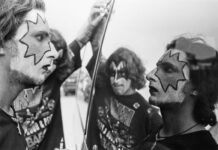«Oh, do not mourn», he said. «Our souls are love and an eternal farewell»
W.B. Yeats, Ephemera
~~~~~~~~~~~~~~~~~~~~~~~~~~~~~~~~~
There are no mountains, there are no summits free of canyons or chasms.
Every man’s life is exactly so.
He reaches the top, only to fall again. He tames wild seas and finds haven to windless harbours until he sets sail again. He ploughs the infertile earth and bores wells. He celebrates and mourns, bids welcomes and says goodbyes.
The ever-fertile valleys are but a fairytale for the children to fall asleep.
Once you get a closer look at these valleys, you’ll see the truth: They are deserts.
~~{}~~
I found myself in the desert, I walked once the kingdom of the sand.
There was an old man, half-blinded and half-crazy, at the train station. He was sitting on the bench eating pumpkin seed shells and he was listening to the trains come and go.
A mountain of shells, of no use to man or beast, had been formed next to the bench.
It was in the Faiyum Oasis, to the place where previously, in ancient times, they were doing portraits covering the faces of bodies that were mummified for burial. That’s how this old man’s face looked like.
~~
Shortly before, the train had stopped in the middle of the desert, in the middle of nowhere. My fellow travelers kept drinking their tea, unruffled. I laid Zarathustra on my seat and got down to have a look.
The sun was dominant. As far as the eye could see, there was nothing else but sand and sun.
Behind me the train was lying like a killed beast. In front of me, nothing. There was no beauty; just a flat void. Like a man’s life who never got mad.
~~
The beast woke up and took us to the station of Faiyum . The old man was laughing when he heard me getting down, me, alone, a twenty-three-year-old child with a book of Nietzsche in my hand.
His eyes were blind, turned white due to cataract. In his mouth there were three teeth left, two above and one below. He was chewing, spitting the shell and laughing. A lonely soul, just like me.
I felt a surge of familiarity towards him and I told him, in Greek, good evening.
“Go in peace Jonah” he answered me with his toothless mouth. “Salaam alaikum Yunani”.
Zarathustra was laughing. The peace is the desert.
And also Beckett in “Endgame” wrote:
-What’s he doing?
-He’s crying.
-Then he’s living.
~~{}~~
We were born into the ocean of the womb. These nine months, where we start as a drop of a sperm until we evolve into an island, are our only total blissful stint.
This is the Lost Paradise we reminisce in our poems and dreams.
When the waters break, we enter the Valley of Tears.
~~
They say that the newborns cry in order to live. Whoever doesn’t cry, is dead, this is known to the midwives since the Time began.
Man is born crying.
Perhaps later they will learn to laugh, to walk and talk too. Perhaps later they will learn how to build, to plant, to fly. Perhaps later they will learn to fight and love. Perhaps later they will learn to kill.
But first they have to learn to cry. Whoever isn’t crying is dead. Whoever feels no pain is dead.
~~{}~~
In the beginning there was crying, in the beginning there was chaos, in the beginning there was speech, in the beginning there was Big Bang.
Everything we know are but fables weaved around the empty shell. We are blind animals wandering round the world. What looks like a light, are merely sparks within our mind.
We don’t know. We believe.
The hardest part is to know yourself. “Know thyself” is one more fable, age-old and inane. If we can’t know ourselves, how is it possible to claim we know anybody or anything else?
~~{}~~
There was a man once who knew everything. He was living on a mountaintop and was laughing scarcely. People would line up and ask him to tell them the truth.
But he did not respond to their questions.
“Which is the meaning of life?” some would ask.
“How will I make myself happy?” some other would query.
“How will I make money?”
“How will I have children?”
“How can I heal myself?”
The man who knew everything wouldn’t answer.
But people kept visiting him at his mountaintop. Every look he gave, his every gesture, but most of all his silence, were construed by everyone the way they wanted.
~~
As a rule, these fables are bookended by a wise saying, a passé-partout, which is the answer to all the questions once and for all.
Something like:
“You are the way”
or “The meaning is the river”
or “All you need is love”
The truth is, that’s how the legend goes, the man who knew everything, the man who was living on the mountaintop and was laughing scarcely, this very man was deaf.
He couldn’t even talk.
He was looking at these people puzzled, because he couldn’t hear what they were telling him, nor did he understand why they went there.
~~
When he died, they made him god and many sayings were attributed to him.
The most widely known and spread is the following:
“…”
~~~~~~~~~~~~~~~~~~~~~~~~~~~~~~~~~~~~~~
~~~~~~~~~~~~~~~~~~~~~~~~~~~~~~~~~~~~~~
The photo is from Sebastião Salgado, out from his latest work, Genesis.
~~~~~~~~~~~~~~~~~~~~~~~~~~~~~~~~~~~~~~~~









